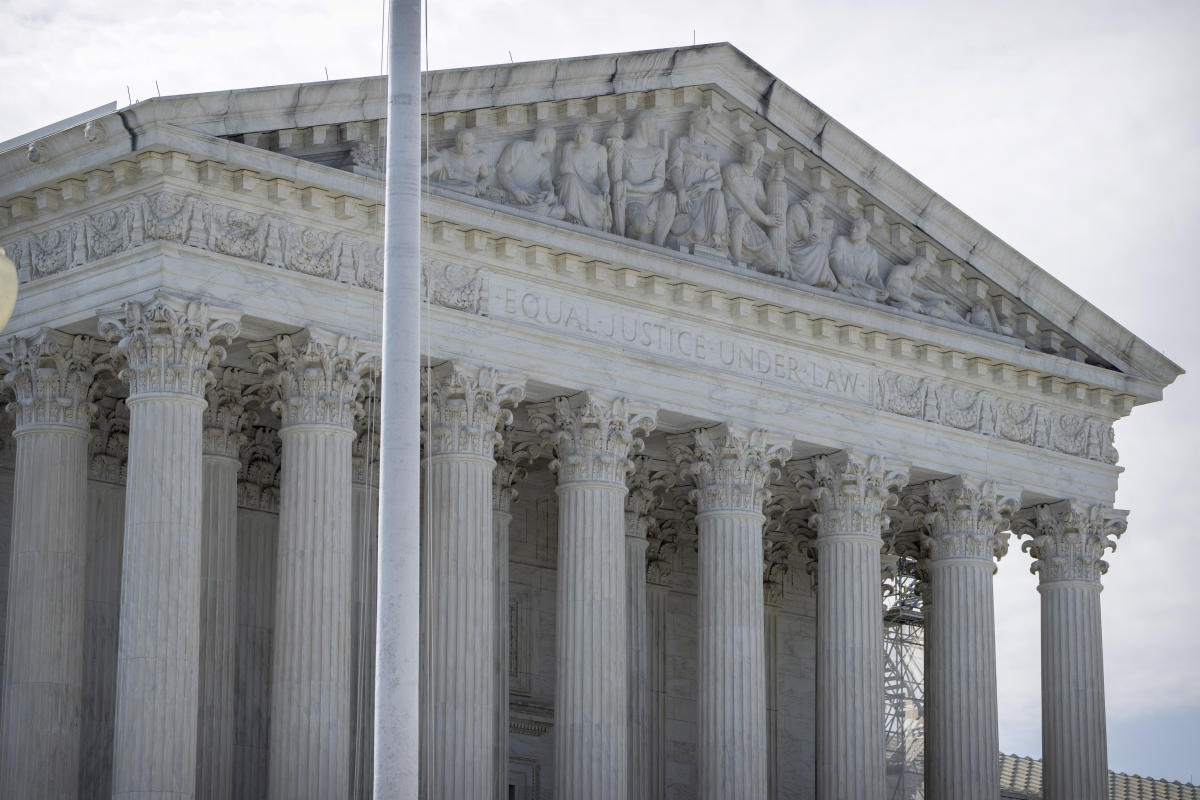As the Supreme Court launches a new term, it remains dominated by a 6-3 super-majority that has ushered in one of the most conservative eras in the institution’s history. In recent years, the justices have overturned key precedents on abortion, gun rights, and the power of federal regulators while forging a groundbreaking path in areas spanning religious liberty, presidential immunity, and other fields that have damaged the Court’s reputation and instigated calls for reforms.
The lurch to the right is the culmination of a more than 50-year transformation. Most Americans are familiar with the latest chapters of that story. Senate Republicans, for example, used unprecedented tactics to prevent Democratic President Barack Obama from filling the Supreme Court seat of the late conservative Justice Antonin Scalia in 2016. They justified the move by claiming that a seat should not be filled in the final months of a presidential term. Four years later, however, they flipped positions and rushed the conservative Amy Coney Barrett through the confirmation process after liberal Justice Ruth Bader Ginsburg died months before the end of Republican Donald Trump’s presidential term.
Yet, most Americans do not know that the seeds of this warfare over the Court were not planted by conservatives in recent years, but by liberals in the late 1960s. Through a combination of hubris, miscalculation, and poor timing, they squandered a majority that could have remained intact for decades to come, giving way to the conservative counter-revolution that continues to dramatically reshape American law.
That hubris was on full display when Lyndon Johnson eyed the high court months after his landslide victory in 1964. Eager to extend the Warren Court’s liberal jurisprudence and fearful that his Great Society might suffer the fate of Franklin Roosevelt’s New Deal initiatives at the hands of conservative jurists, Johnson resolved to maintain the institution’s ideological bent.
Read More: A Mistake in the Early 1970s Still Haunts Supreme Court Ethics
To accomplish this task, he sought to do the impossible—remove a sitting justice to make room for his close friend and counselor, Abe Fortas. Fortas was a brilliant attorney renowned for winning the landmark case Gideon v. Wainright, which expanded the Sixth Amendment’s right to counsel to state prosecutions.
In 1965, the news of Justice Arthur Goldberg’s frustration with the Court’s tepid pace, which couldn’t match the rush Goldberg had felt as a former union negotiator and Labor Secretary, gave Johnson an opening. Exploiting the justice’s patriotism and ego, he offered Goldberg the ambassadorship to the U.N., along with a promise that the justice would be his point man on Vietnam. To sweeten the offer, Johnson vowed to make Goldberg a “second secretary of state.” Though never intending to keep these promises, Johnson even dangled the prospect of adding the justice to his ticket in 1968 as a final inducement. Goldberg succumbed within days.
Johnson then coaxed Fortas, who preferred to maintain his lucrative private legal practice, into accepting the appointment. Having endured Johnson’s full-court press, Goldberg presciently told his clerks: “He’s going to wear him down.” To overcome Fortas’ repeated refusals, Johnson asked his friend to visit the White House and then sprung the news that they were headed to a press conference to announce Fortas’ appointment. “To the best of my knowledge… I never said yes” Fortas later proclaimed—but he found himself on the Court all the same.
Johnson’s next move was just as cunning. To dislodge Tom Clark, a center-right justice, Johnson appointed the justice’s son, Ramsey, to lead the Justice Department in 1967, knowing that the senior Clark would resign rather than risk a conflict of interest that could impede his son’s advancement.
At that point, Johnson’s reengineering of the Court looked like a masterclass in Machiavellian scheming. Though Goldberg and Fortas were ideologically comparable, replacing Clark with Thurgood Marshall created a 6-3 liberal bloc capable of perpetuating the Warren Court for years to come.
Yet, what might have been the next chapter in cementing the liberal dominance of the Court instead proved to be the beginning of its undoing. In June 1968, Chief Justice Earl Warren decided to retire because he was convinced that Richard Nixon would win the presidency. Warren “detested” his fellow Californian with an “abiding passion” and feared Nixon would dismantle the Warren Court’s revolutionary legacy.
Johnson ignored the plethora of names suggested to him, which included Texas Governor John Connally, Attorney General Clark, Goldberg, and others. Instead, he selected Fortas to be chief justice and Homer Thornberry, an old friend serving as a federal appeals court judge, for Fortas’ seat. In doing so, Johnson rejected Defense Secretary Clark Clifford’s suggestion of pairing Fortas with a moderate Republican to secure GOP support. “I don’t intend to put some damned Republican on the Court,” Johnson fired back at Clifford.
The choice of the Texan Thornberry was intended to appease conservative Southern Democrats—the Warren Court’s biggest critics. When an aide warned that Thornberry and Fortas would be ripe for charges of cronyism, the president mocked his calculations: “What political office did you ever get elected to?”
To secure the nominations, Johnson attained personal guarantees from the Senate’s two most powerful members, Minority Leader Everett Dirksen, and Richard Russell, the long-time leader of the Southern Democrats. Backed by Johnson—the one time “Master of the Senate”—and having been easily confirmed in 1965, Fortas’ ascension seemed like a foregone conclusion.
To the surprise of the Washington establishment, however, a coalition led by a Republican odd couple—ardent segregationist Strom Thurmond, and Robert Griffin, a centrist from Michigan—shattered the well-established norms governing judicial appointments to upend the nominations.
The rebels savvily allied themselves with the Southern Democrats to organize the first filibuster against a Court nominee. Initially, they galvanized the opposition with the then-novel argument that since it was an election year, the next president, not the “lame duck” Johnson, ought to name the new chief justice.
Gaining momentum, their attacks grew more strident. Fortas’ foes labeled him a crony for serving as the president’s advisor, questioned his ethics by pointing to oversized payments for a teaching position, and welcomed social conservatives to tar him as a patron of criminals and pornographers.
Read More: How SCOTUS Gave Prosecutors Incredible Power Over Abortion Access
Thurmond’s histrionics reached their apogee when, screaming from the dais during Fortas’ confirmation hearings, he accused the nominee of inciting criminals to “commit rapes.” His most unorthodox exploit involved the airing of adult movies the Court had shielded from censors. The unprecedented spectacle mockingly named the “Fortas Film Festival” was the last straw that doomed the justice’s candidacy.
The failure exposed Johnson’s miscalculations. Contrary to what he had envisioned, Thornberry’s selection failed to pacify the Southern Democrats. And by picking Fortas rather than a centrist or someone not already sitting on the Court, Johnson unwittingly gave the Warren Court’s enemies a prime target.
Even more surprisingly, for a president revered for bending the Senate to his will, he failed to rally the chamber’s liberals angered over his handling of the Vietnam War. The final blow came when his two long-time friends, Dirksen and Russell, abandoned Johnson, the latter in a pique over Ramsey Clark’s handling of a district court judgeship.
After a May 1969 LIFE article exposed a short lived dubious financial arrangement between Fortas and a white-collar criminal, Warren pressured him into resigning to preserve the Court’s integrity. Upon Warren’s retirement a few weeks afterwards, the liberal hold over the institution was over after 30 years.
It would take more than two decades for conservatives to seize firm control of the Court and another three to reach today’s commanding super-majority. Along the way, Republicans suffered numerous setbacks, highlighted by Robert Bork’s botched nomination in 1987 and the liberal turn taken by Justices Harry Blackmun, John Paul Stevens, and David Souter. The abrupt shift in the Court’s ideological make-up in 1969, however, allowed the right to lay the foundation for the long-term transformation of the judicial body into a conservative stronghold.

The demise of the Court’s liberal majority is littered with what-ifs. Justices Hugo Black and William Douglas had been on the Court for more than a quarter century by the mid-1960s (and Black was 80 years old). What if they had retired during Johnson’s presidency rather than serve until infirmity forced their resignations at moments when Republicans occupied the White House?
What if Clark had acquiesced to Russell’s judicial pick, thereby keeping the head of the Southern Democrats in Fortas’ camp? What if Warren had retired earlier, when Johnson’s power was at its apex, or hadn’t driven Fortas from the Court for his ethical lapse? What if Johnson hadn’t duped Goldberg into resigning in 1965 or if he had tried to reinstall the former justice on the Court in 1968?
At the center of all of this was Johnson’s blundering. In his memoir, the former president admitted he “feared… a conservative Court.” Yet, in trying to prevent it, he instead helped foster the creation of the very thing he feared.
Michael Bobelian is a journalist who has written about the Supreme Court, legal affairs, and history for the Washington Post, Los Angeles Times, Forbes.com, and other publications. His most recent book is Battle for the Marble Palace: Abe Fortas, Earl Warren, Lyndon Johnson, Richard Nixon, and the Forging of the Modern Supreme Court.
Made by History takes readers beyond the headlines with articles written and edited by professional historians. Learn more about Made by History at TIME here. Opinions expressed do not necessarily reflect the views of TIME editors.








































































































































You must be logged in to post a comment Login